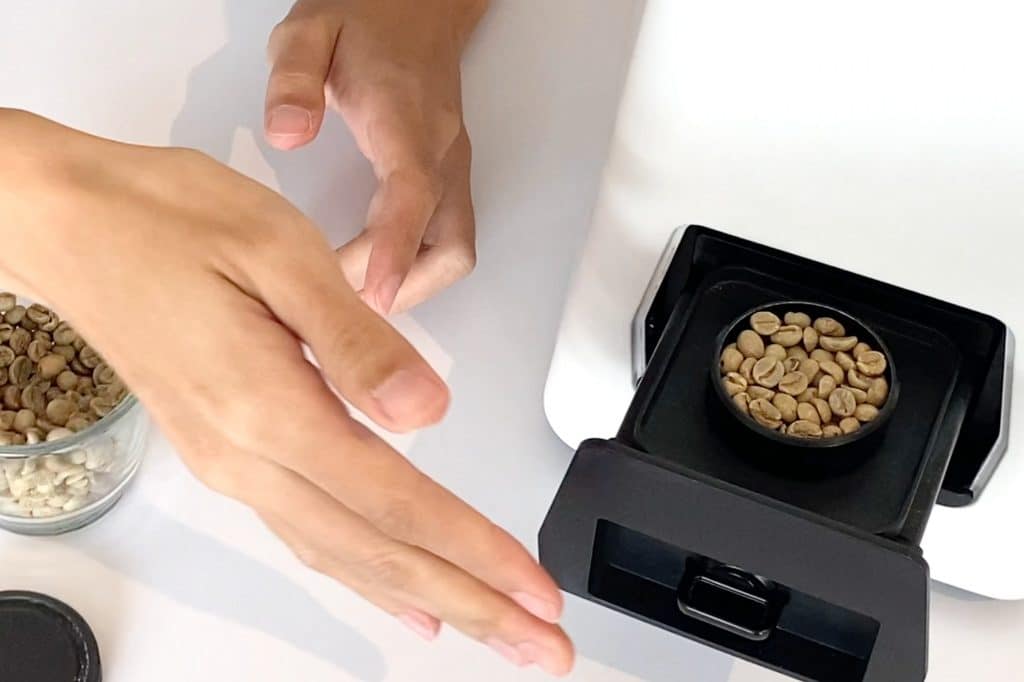Singapore-based food technology company ProfilePrint is using its patented A.I food fingerprinting technology to ascertain the quality of coffee and help support the value chain.
Just like a fingerprint scan assesses biometric information to verify identity, a scan of a coffee bean profile could the key to unlocking a new level of traceability and quality in the coffee supply chain.
Singaporean food ingredient search engine platform ProfilePrint is on a mission to use its technology for the greater good.
“ProfilePrint is the world’s first company to have successfully developed an artificial intelligence (A.I.) food fingerprint technology, where digital markers of each ingredient are created by analysing ingredients down to a molecular level,” says ProfilePrint Director of Coffee, Xinyi Loke.
“Buyers and sellers are then able to access the quality reports generated by this analysis, giving buyers a way to ascertain the quality of the ingredients and be sure that the goods match their demands.”
First unveiled in June 2021, the technology has now been commissioned to predict the quality of auctioned coffee beans, after a chance purchase in Uganda.
“Our founder Alan Lai actually came up with this idea when he was travelling in Uganda,” says ProfilePrint Head of Marketing Nicolette Yeo. “He drove past a farm with farmers harvesting chia seeds and decided to stop and buy a big one-kilogram bag for only $1.”
“A few weeks later he was in London and saw a 250-gram bag of chia seeds for $10 and thought this was the source of inspiration to start ProfilePrint, in the hope that such a technology could bridge this gap and allow farmers to earn more.”
The fingerprint technology was first trialled with coffee beans at the virtual Singapore Coffee Association auction last year. Loke says the ability for A.I technology to predict the quality of coffee beans could hold the key to safely and confidently buying coffee beans from online auctions.
“With just 50 grams of coffee bean samples, ProfilePrint’s non-destructive technology scans and generates a digital report and ‘fingerprint’, including cupping scores and other sensory parameters,” says Loke.
Loke says this facilitates the sharing of results and scores with potential buyers with greater ease and convenience.
“The portable analyser captures data rich chemical signatures in a single scan before a proprietary algorithm is developed based on a combination of comprehensive chemometrics and A.I. models,” says Loke.
“The technology can then predict quality profile or sensory parameters of unknown samples within seconds.”
Loke says customers can also scan coffee beans and keep the digital fingerprints on a database, so there’s a historical collection to all coffee profiles the customer has ever used.
“Farmers can access potential buyers of their beans faster at a lower cost to help increase profits. They can also receive faster feedback on the quality of their coffee from customers all over the world so they can perfect their product,” says Loke.
But the benefits to the coffee industry, Yeo says, doesn’t just stop with the primary source of the farmer, it affects everyone along the supply chain.
“For importers, it also reduces their carbon footprint, as they no longer have to send physical samples across the globe, especially during COVID when it’s so expensive and incredibly slow,” Yeo says.
“It also allows importers to be more confident when making buying decisions, as we’re also enabling buyers and sellers to communicate easily.”
Partners of ProfilePrint include some of the world’s largest food ingredient conglomerates in Louis Dreyfus Company, Olam Food Ingredients (OFI), Sucafina, and international venture capital funds Greenwillow Capital Management and Real Tech Global Fund.
ProfilePrint says this rise in popularity and investment is all to do with the simple way the technology can benefit the coffee bean buying and selling process.
“I think partners have chosen to invest in this technology because they can definitely see how ProfilePrint can help the entire supply chain system,” Yeo says.
ProfilePrint says it will continue testing its technology and using funding to leverage networks across the globe that deepen its product offerings.
“This technology could significantly expedite the quality assessment process to benefit the entire value chain, from farmers to roasters,” says Loke.
This article was first published in the May/June 2022 edition of Global Coffee Report. Read more HERE.

